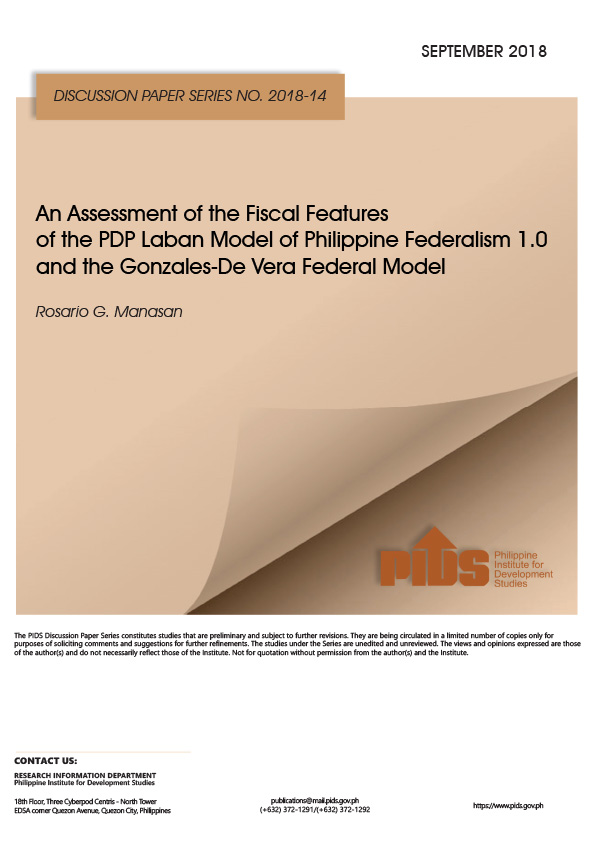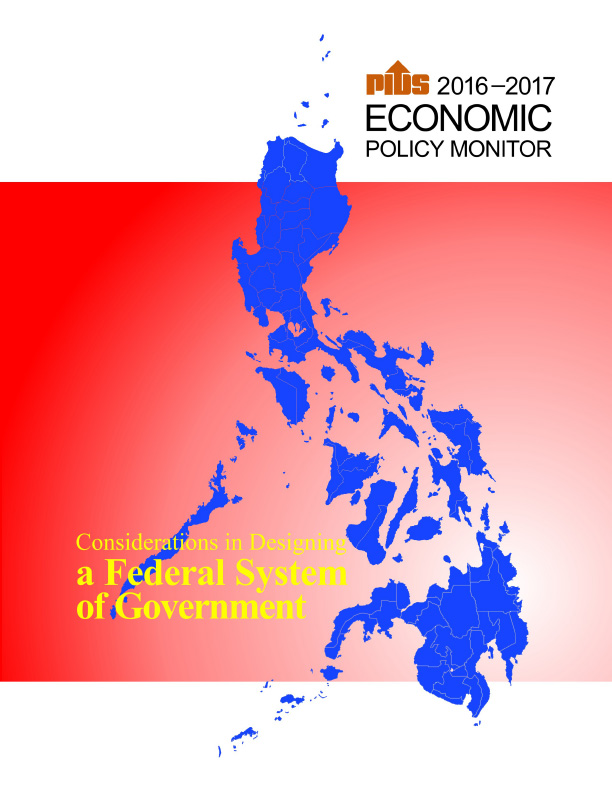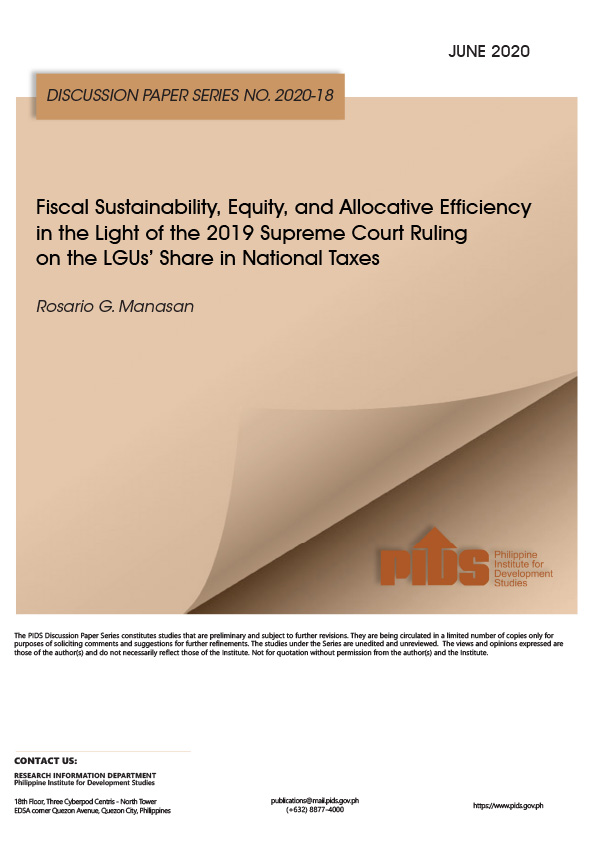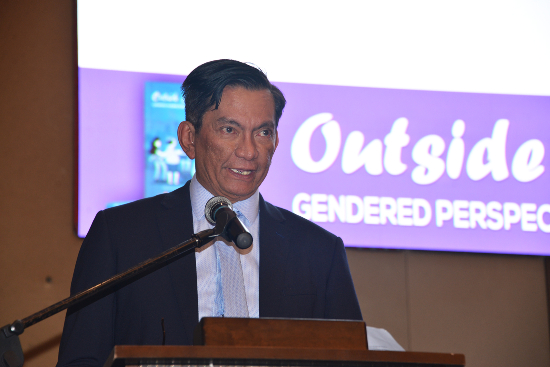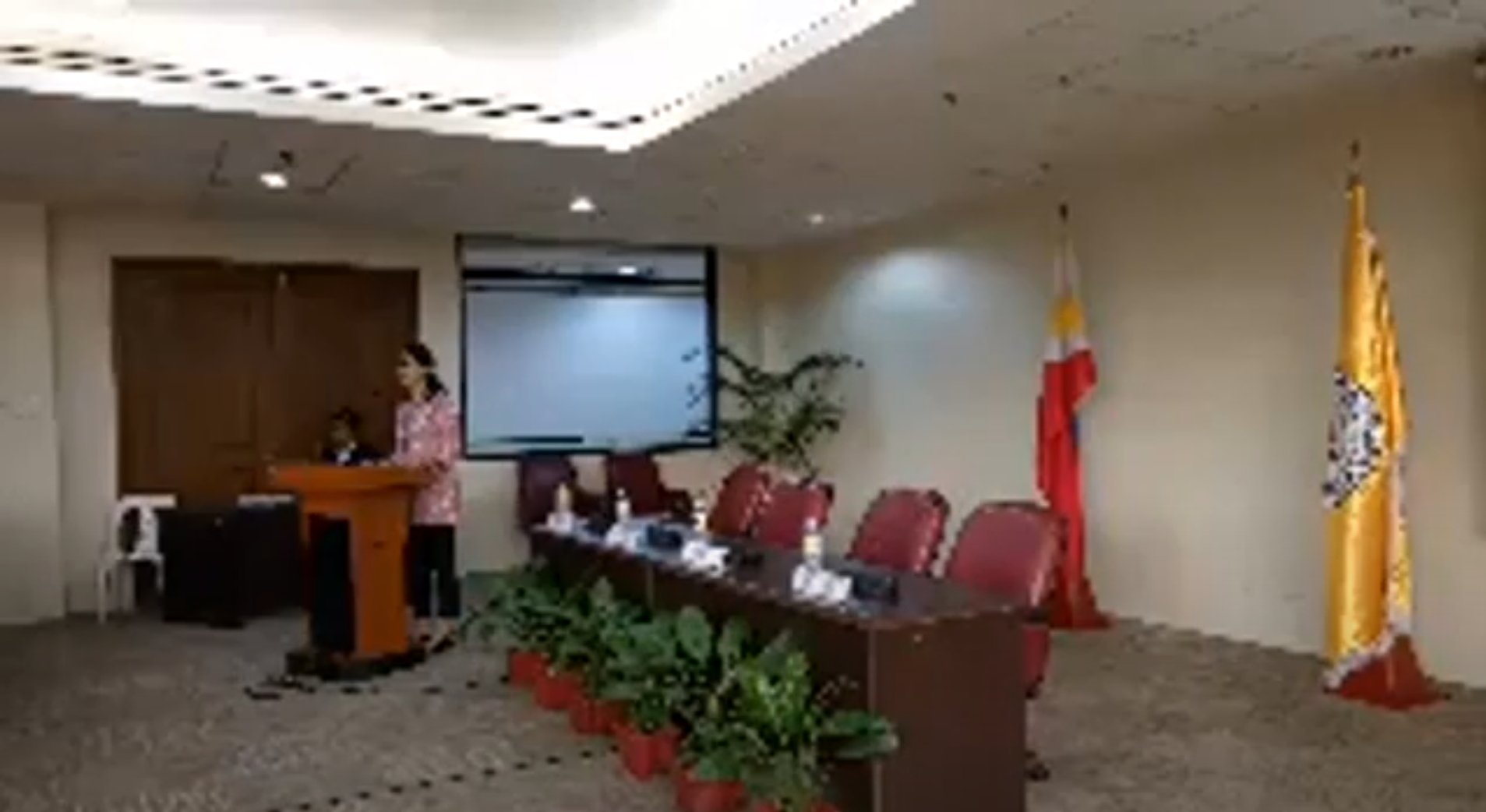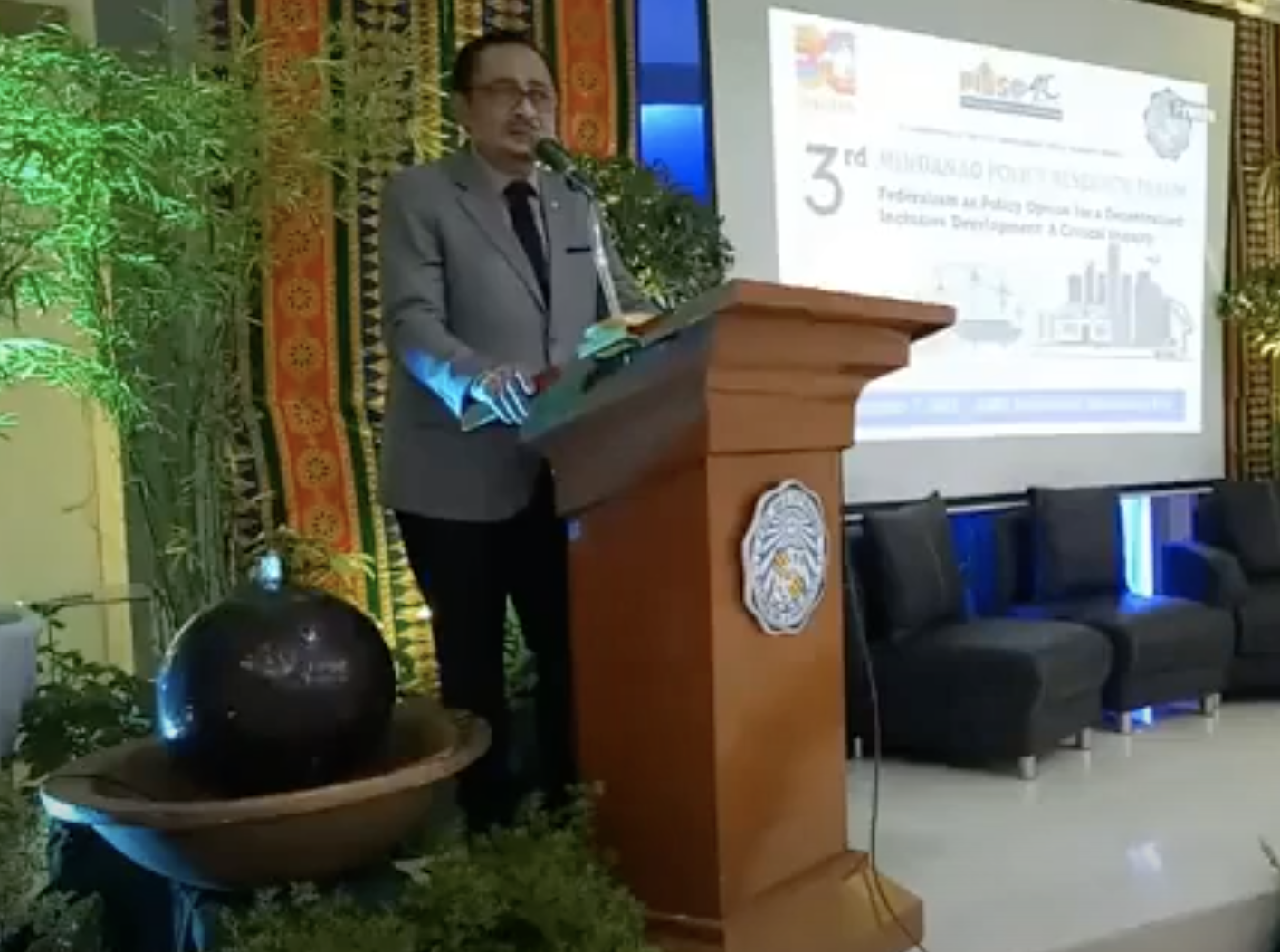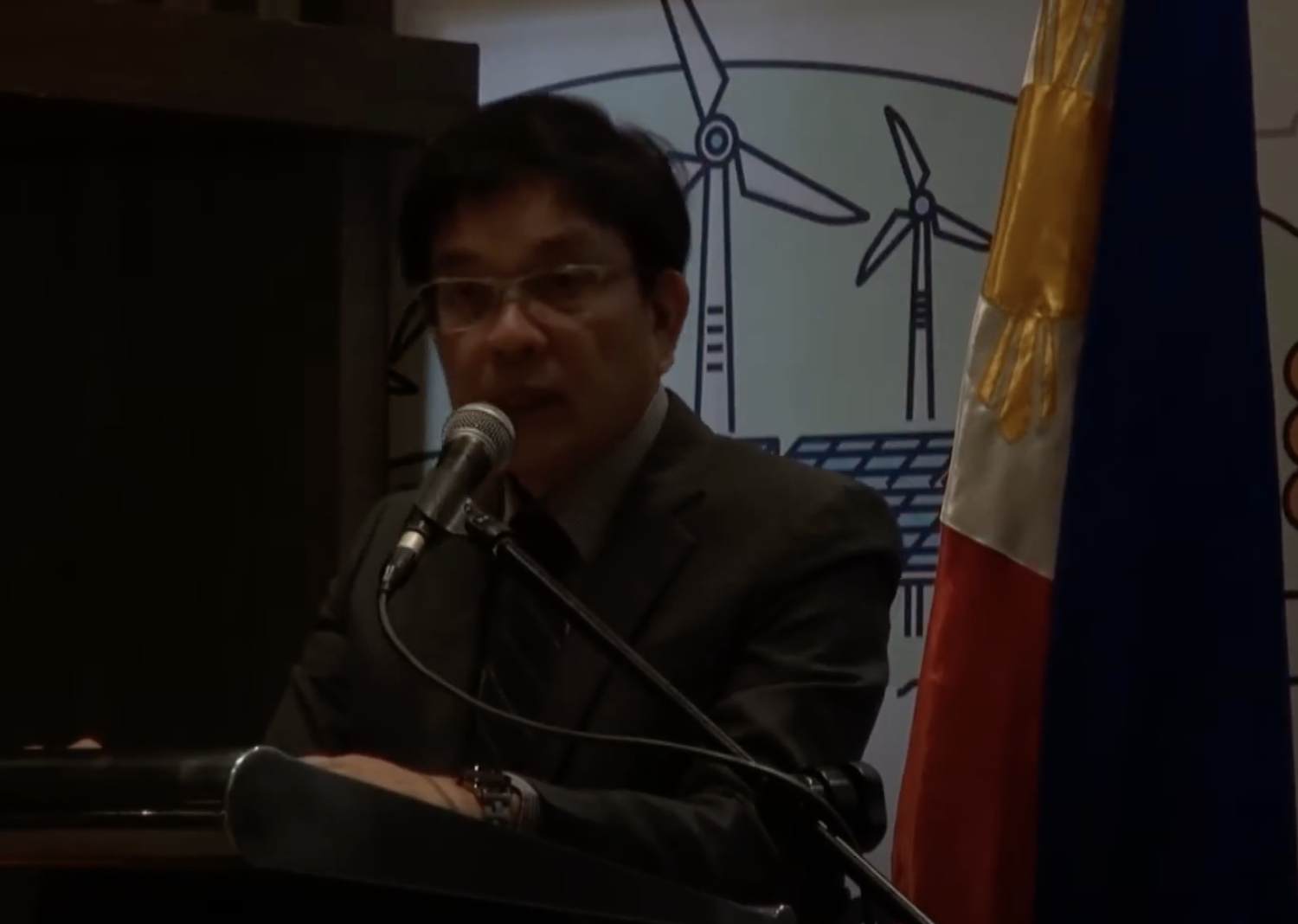Part Three
DURING a congressional committee hearing on Constitutional amendments early-October, an acknowledged authority on Constitution reiterated “concerns” over the move to a federal form of government.
Retired Supreme Court Associate Justice Vicente B. Mendoza cited the current situation in Spain, wherein Catalonia, a rich province, is moving to secede. Mendoza noted that Catalonia “has always been, more or less, independent of Madrid; that’s why some call Spain a federal government”.
That’s one of the risks of fragmenting. For so many years, our efforts have been for unity for these thousand islands,” he said during the hearing where he was invited as a resource person. “Provinces are not self-supporting; they’re not self-governing. Which province can honestly claim a natural boundary from a neighboring province?”
Mendoza expressed surprise at a recent announcement from PDP-Laban’s Jonathan E. Malaya that the version of federalism they gave to Malacañang will provide sovereignty only to the federal government and not to the federal states.
“This contradicts early statement from Senate President [Aquilino] L. Pimentel III, who said federalism is apt for the Philippines because, in this system, sovereignty is constitutionally divided between the central government and its constituent political units—state or provinces.”
Unity
THE former magistrate noted that, as it presently stands, “there should be an agreement as to what we mean by federalism”.
“Merely to cluster existing provinces or to convert existing provincial administrative regions, which are not self-governing, into sovereign states—assuming that is what is going to happen—will not ipso facto make that a real state.” He said the Philippines may get into a federal state, which is decentralized but is still a unitary government.
Mendoza added: “If that’s what the PDP-Laban is proposing, then I agree into that, where policy-making is still retained by a central government but administratively decentralized so that the provinces can pursue policies in the way they see it fit.”
He, however, has recommended that whether under a federal or a decentralized unitary system, several provisions in the Constitution be retained, particularly those on independent Constitutional bodies. Mendoza even proposed to strengthen the Commission on Human Rights and the Office of the Ombudsman by elevating their ranks to that of the Commission on Election (Comelec) and the Commission on Audit (COA). He explained that both the Comelec and the COA receive automatic budgets, and the heads are confirmed by the Commission on Appointment, unlike the CHR and Ombudsman who are merely presidential appointments.
Examples
MENDOZA also reiterated his definition of federalism in the hope that proponents “will think many times” in their proposal for shifting to a federal system.
“Federal states were created when several self-governing territories agreed to form a union, surrendering some of their powers and retaining some for themselves,” he said. “Such are the cases of the United States of America, the dominion of Canada, the commonwealth of Australia and even the most recent federation of Malaysia.”
Mendoza added the US was formed when 13 population centers in North America simultaneously declared their independence from Great Britain. Eventually, it became a federal nation when they realized that they had a better chance at defending their independence by force should the British try to reimpose its colonial authority on them, he said.
He added Canada was established when its three provinces agreed to unite because they feared being overrun by American expansionism. “Australia was established when its six population centers united for fear of conquest by Prussia, which manifested its presence in the Pacific, by Germany, which occupied parts of nearby New Guinea, and by France, which colonized neighboring New Caledonia.”
According to Mendoza, the common denominator of these federal countries “is prior existence of distinct, autonomous communities”.
These communities, he said, “eventually found a need to federalize in order to gain political or military strength”.
Reverse
to Mendoza, the Philippine attempt at federalism is the complete reverse— fragmentation of an independent country into “smaller, weaker, separate units”—of what the US and other highly developed countries did.
The retired Justice also expressed fears that, should the Philippines succeed in mutilating itself “and cluster into small groups”, there is no certainty that the hope for reunification as a federal country will happen eventually.
“Some of the independent states would do it alone; some would be prey to neighboring states, especially those that are weak and cannot maintain themselves,” Mendoza said. “In those who [do] succeed, local tyrants or regional despots will arise in lieu of a national dictator.”
“Right now, there are many warlords in Mindanao,” Mendoza added. “What will happen when these warlords seize the reins of state government?”
Mendoza’s fears are shared by former Chief Justice Reynato Puno who said that before the Duterte administration moves for federalism, it should first enact the Anti-Dynasty Bill. Puno, to note, is advising the current administration on federalism.
Mendoza emphasized that even if the Philippines is an archipelago, which is used by proponents to push for federalism, 2,000 of the 7,000 islands comprising the archipelago are uninhabited. He added that the archipelago’s islands constitute one country that has fought wars under one flag and sings one anthem.
Oneness
ACCORDING to Mendoza, “Filipinos may speak different languages, but [they] have both a national language, and [the] English [language that] allow them to communicate with one another.”
He acknowledged, however, that the concentration of power in the national government is the main obstacle to the development of the country. However, Mendoza maintained that the solution is the decentralization of the national government, not federalism.
“Decentralization is a managerial concept involving the delegation of administrative powers to local governments while keeping policy determination in the central government.”
In sum, Mendoza cautioned against “an unorthodox approach to a problem that can be addressed through conventional means”.
“Because radical solutions often give rise to other, more serious problems,” Mendoza said, quoting the constitutionalist Paul Freund, who said: “If it isn’t necessary to change, it is necessary not to change.”
In a forum in the University of the Philippines (UP)-Diliman campus early this year, former UP President Jose Abueva also expressed support for retaining the existing unitary government saying that the solution to “the nation’s social and political woes lies not in creating a federal government, but in putting up a parliamentary one, devoid of political dynasties”.
Concepcion, professor at the Ateneo de Zamboanga University, said “in the United States they do not use the term ‘decentralization’ but ‘federal’”.
Conception said, in the Philippines, “it is the national government that will relegate political powers to the federal states, such as the power of the local governments emanated from a law passed by Congress”.
To be continued
DURING a congressional committee hearing on Constitutional amendments early-October, an acknowledged authority on Constitution reiterated “concerns” over the move to a federal form of government.
Retired Supreme Court Associate Justice Vicente B. Mendoza cited the current situation in Spain, wherein Catalonia, a rich province, is moving to secede. Mendoza noted that Catalonia “has always been, more or less, independent of Madrid; that’s why some call Spain a federal government”.
That’s one of the risks of fragmenting. For so many years, our efforts have been for unity for these thousand islands,” he said during the hearing where he was invited as a resource person. “Provinces are not self-supporting; they’re not self-governing. Which province can honestly claim a natural boundary from a neighboring province?”
Mendoza expressed surprise at a recent announcement from PDP-Laban’s Jonathan E. Malaya that the version of federalism they gave to Malacañang will provide sovereignty only to the federal government and not to the federal states.
“This contradicts early statement from Senate President [Aquilino] L. Pimentel III, who said federalism is apt for the Philippines because, in this system, sovereignty is constitutionally divided between the central government and its constituent political units—state or provinces.”
Unity
THE former magistrate noted that, as it presently stands, “there should be an agreement as to what we mean by federalism”.
“Merely to cluster existing provinces or to convert existing provincial administrative regions, which are not self-governing, into sovereign states—assuming that is what is going to happen—will not ipso facto make that a real state.” He said the Philippines may get into a federal state, which is decentralized but is still a unitary government.
Mendoza added: “If that’s what the PDP-Laban is proposing, then I agree into that, where policy-making is still retained by a central government but administratively decentralized so that the provinces can pursue policies in the way they see it fit.”
He, however, has recommended that whether under a federal or a decentralized unitary system, several provisions in the Constitution be retained, particularly those on independent Constitutional bodies. Mendoza even proposed to strengthen the Commission on Human Rights and the Office of the Ombudsman by elevating their ranks to that of the Commission on Election (Comelec) and the Commission on Audit (COA). He explained that both the Comelec and the COA receive automatic budgets, and the heads are confirmed by the Commission on Appointment, unlike the CHR and Ombudsman who are merely presidential appointments.
Examples
MENDOZA also reiterated his definition of federalism in the hope that proponents “will think many times” in their proposal for shifting to a federal system.
“Federal states were created when several self-governing territories agreed to form a union, surrendering some of their powers and retaining some for themselves,” he said. “Such are the cases of the United States of America, the dominion of Canada, the commonwealth of Australia and even the most recent federation of Malaysia.”
Mendoza added the US was formed when 13 population centers in North America simultaneously declared their independence from Great Britain. Eventually, it became a federal nation when they realized that they had a better chance at defending their independence by force should the British try to reimpose its colonial authority on them, he said.
He added Canada was established when its three provinces agreed to unite because they feared being overrun by American expansionism. “Australia was established when its six population centers united for fear of conquest by Prussia, which manifested its presence in the Pacific, by Germany, which occupied parts of nearby New Guinea, and by France, which colonized neighboring New Caledonia.”
According to Mendoza, the common denominator of these federal countries “is prior existence of distinct, autonomous communities”.
These communities, he said, “eventually found a need to federalize in order to gain political or military strength”.
Reverse
to Mendoza, the Philippine attempt at federalism is the complete reverse— fragmentation of an independent country into “smaller, weaker, separate units”—of what the US and other highly developed countries did.
The retired Justice also expressed fears that, should the Philippines succeed in mutilating itself “and cluster into small groups”, there is no certainty that the hope for reunification as a federal country will happen eventually.
“Some of the independent states would do it alone; some would be prey to neighboring states, especially those that are weak and cannot maintain themselves,” Mendoza said. “In those who [do] succeed, local tyrants or regional despots will arise in lieu of a national dictator.”
“Right now, there are many warlords in Mindanao,” Mendoza added. “What will happen when these warlords seize the reins of state government?”
Mendoza’s fears are shared by former Chief Justice Reynato Puno who said that before the Duterte administration moves for federalism, it should first enact the Anti-Dynasty Bill. Puno, to note, is advising the current administration on federalism.
Mendoza emphasized that even if the Philippines is an archipelago, which is used by proponents to push for federalism, 2,000 of the 7,000 islands comprising the archipelago are uninhabited. He added that the archipelago’s islands constitute one country that has fought wars under one flag and sings one anthem.
Oneness
ACCORDING to Mendoza, “Filipinos may speak different languages, but [they] have both a national language, and [the] English [language that] allow them to communicate with one another.”
He acknowledged, however, that the concentration of power in the national government is the main obstacle to the development of the country. However, Mendoza maintained that the solution is the decentralization of the national government, not federalism.
“Decentralization is a managerial concept involving the delegation of administrative powers to local governments while keeping policy determination in the central government.”
In sum, Mendoza cautioned against “an unorthodox approach to a problem that can be addressed through conventional means”.
“Because radical solutions often give rise to other, more serious problems,” Mendoza said, quoting the constitutionalist Paul Freund, who said: “If it isn’t necessary to change, it is necessary not to change.”
In a forum in the University of the Philippines (UP)-Diliman campus early this year, former UP President Jose Abueva also expressed support for retaining the existing unitary government saying that the solution to “the nation’s social and political woes lies not in creating a federal government, but in putting up a parliamentary one, devoid of political dynasties”.
Concepcion, professor at the Ateneo de Zamboanga University, said “in the United States they do not use the term ‘decentralization’ but ‘federal’”.
Conception said, in the Philippines, “it is the national government that will relegate political powers to the federal states, such as the power of the local governments emanated from a law passed by Congress”.
To be continued

